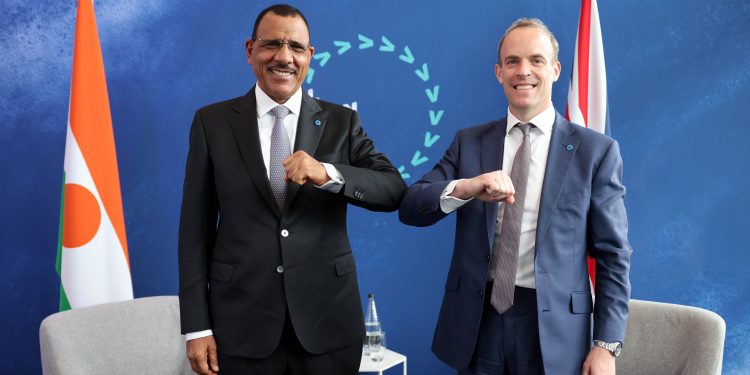Niger’s military has declared its plan to prosecute the ousted President, Mohamed Bazoum, on charges of high treason and endangering the country’s security. This announcement was made via a statement read on national television, indicating the military’s determination to take legal action against Bazoum.
Since the coup on July 26, Bazoum and his family have been held at the presidential residence in Niamey. International concerns have risen over their well-being and conditions in detention.
ECOWAS has called for the reinstatement of Bazoum and has placed severe economic sanctions on Niger. The bloc has also approved the deployment of a standby force to restore constitutional order in the country. Despite this, ECOWAS remains committed to diplomatic solutions to the crisis.
A group of Nigerian Islamic scholars announced their intention to engage in direct talks with the coup leader, Abdourahamane Tchiani. This initiative has received the support of Nigerian President Bola Tinubu, who also heads ECOWAS. Tchiani has reportedly agreed to hold discussions with ECOWAS leaders to address the crisis.
The announcement of charges against Bazoum is expected to increase tensions between Niger’s military and the international community. This move might indicate the military’s resolve to maintain its position and potentially strengthen its negotiating stance in future talks.
The prospect of a military intervention to reinstate Bazoum has divided ECOWAS members and raised concerns from foreign powers like Russia and Algeria. Neighboring countries Mali and Burkina Faso, also under military rule due to coups, view intervention as a potential declaration of war against them.
The coup in Niger has significant implications for regional stability, particularly in the Sahel region. Western nations, including the US and France, had viewed Niger as a partner in countering the rise of groups linked to al-Qaeda and ISIS in the region.
The United States and France have substantial military presence in the Sahel region and have invested resources in military assistance and training for Niger’s forces. The coup has posed challenges to the stability and partnerships in the region that Western nations had cultivated



